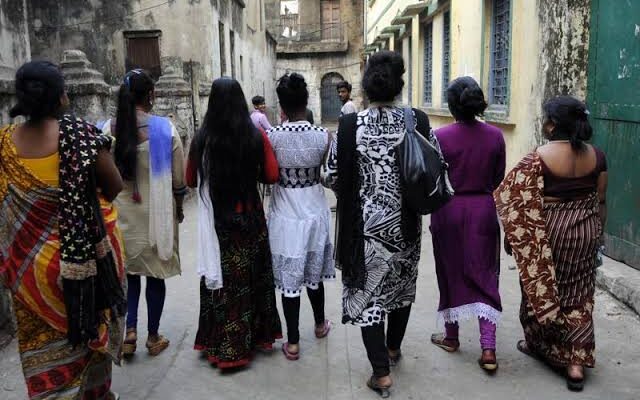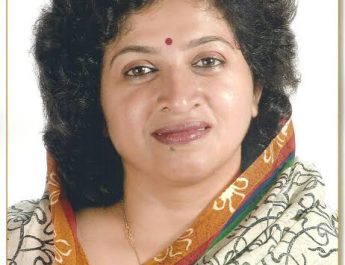It directed the police of all states and Union Territories in an order passed on May 19 not to interfere nor take criminal action against the adult and consenting sex workers who do adult and consensual sex work, whether in a brothel or any other private place.
“It need not be gainsaid that notwithstanding the profession, every individual in this country has a right to a dignified life under Article 21 of the Constitution,” the court observed.
A bench of Justices L Nageswara Rao, BR Gavai and AS Bopanna issued six directions towards securing the rights of sex workers, saying sex workers are also entitled to equal protection of the law. The supreme court said that, when it becomes clear that the sex worker is an adult and is doing it of her own free will, the police should refrain from interfering in it and taking criminal action.
The top court’s order came on the detailed recommendations of a panel it had set up to exam the issues pertaining to prevention of trafficking, rehabilitation of sex workers wanting to quit sex work and the conditions conducive of sex workers to live with dignity under Article 21.
It directed the Centre, which expressed reservations about many recommendations, to respond through an affidavit on the recommendations of the panel within six weeks, while fixing the next date of hearing on July 27. As regards the other panel recommendations which were endorsed by the Centre, the Supreme Court directed the States and Union Territories to strictly follow them.
The court also ordered that whenever the police raided any brothel, the sex worker should not be “arrested or penalised or harassed or victimised since voluntary sex work out of desire
“Sex workers are entitled to equal protection of the law. Criminal law must apply equally in all cases, on the basis of ‘age’ and ‘consent’. When it is clear that the sex worker is an adult and is participating with consent, the police must refrain from interfering or taking any criminal action,” said the order passed invoking special powers under Article 142 of the Constitution.
The Court also ruled that a child of a sex worker shouldnot be eparated from teh mother merely on the ground taht she is in the sex trade. “Basic protection of human decency and dignity extends to sex workers and their children,” the Court said.
Further, if a minor is found living in a brothel or with sex workers, it should not be presumed that the child was trafficked.
“In case the sex worker claims that he/she is her son/daughter, tests can be done to determine if the claim is correct and if so, the minor should not be forcibly separated,” the court ordered.
The court ordered the police to not discriminate against sex workers who lodge a criminal complaint, especially if the offence committed against them is of a sexual nature. Sex workers who are victims of sexual assault should be provided every facility including immediate medico-legal care.
“It has been noticed that the attitude of the police to sex workers is often brutal and violent. It is as if they are a class whose rights are not recognised,” the court said, calling for sensitisation.
There have been concerns that police view sex workers differently from others. When a sex worker makes a complaint of criminal/sexual/any other type of offence, the police must take it seriously and act in accordance with law, the Court said.
The court said media should take “utmost care not to reveal the identities of sex workers, during arrest, raid and rescue operations, whether as victims or accused and not to publish or telecast any photos that would result in disclosure of such identities”. Voyeurism is a criminal offence, it reminded.
Measures taken by sex workers, like the use of condom, should not be construed by the police as evidence of their “offence”.
The Centre and States must involve sex workers or their representatives to reform laws, the court suggested.
Four of the recommendations of the SC-appointed panel objected by the Centre are:
— Sex workers are entitled to equal protection of the law. Criminal law must apply equally in all cases, on the basis of ‘age’ and ‘consent’. When it is clear that the sex worker is an adult and is participating with consent, the police must refrain from interfering or taking any criminal action.
— Whenever there is a raid on any brothel, since voluntary sex work is not illegal and only running the brothel is unlawful, the sex workers concerned should not be arrested or penalised or harassed or victimised.
— The Central Government and the State Governments must involve the sex workers and/or their representatives in all decision-making processes, including planning, designing and implementing any policy or programme for the sex workers or formulating any change/reform in the laws relating to sex work. This can be done, either by including them in the decision-making authorities/panel and/or by taking their views on any decision affecting them.
As already recommended in the 6th interim Report dated 22.03.2012, no child of a sex worker should be separated from the mother merely on the ground that she is in the sex trade. Further, if a minor is found living in a brothel or with sex workers, it should not be presumed that he/she has been trafficked. In case the sex worker claims that he/she is her son/daughter, tests can be done to determine if the claim is correct and if so, the minor should not be forcibly separated.
On the last date of hearing both Senior Advocate, Mr. Anand Grover and Amicus Curiae, Mr. Jayant Bhushan had apprised the Bench that the sex workers are often confined in correction/shelter homes for inordinate period of time against their wishes.
Additional Solicitor General, Mr. Jayant Sud was of the opinion that the sex workers who are rescued from the brothel are kept in the shelter homes for their safekepping as it is tricky to verify at the very threshold whether the sex worker had voluntarily consened or coerced into it.
He stated that most of sex workers, trafficked from across the country, might not know anyone in the city where they are practicing the trade and therefore, they are vulnerable to coercion. He suggested that asking teh police to refrain from interfereing if the sex workers are consenting adults might not be feasible. He stressed that inquiry is essential to find out if the consent ws voluntary or not.
Considering the ground reality, that the sex workers who are rescued and produced before a Magistrate are sent to correctional homes for no less than 2 to 3 years, Justice Rao had suggested that the Magistrate, at the threshold, could decide on the issue of consent. In the interim the sex workers could be kept in these homes and if the Magistrate decides that the sex worker had consented, they could be let out. Justice Rao was of the firm opinion that the concerned authorities cannot force sex workers to stay in correction/shelter homes against their will.
###





